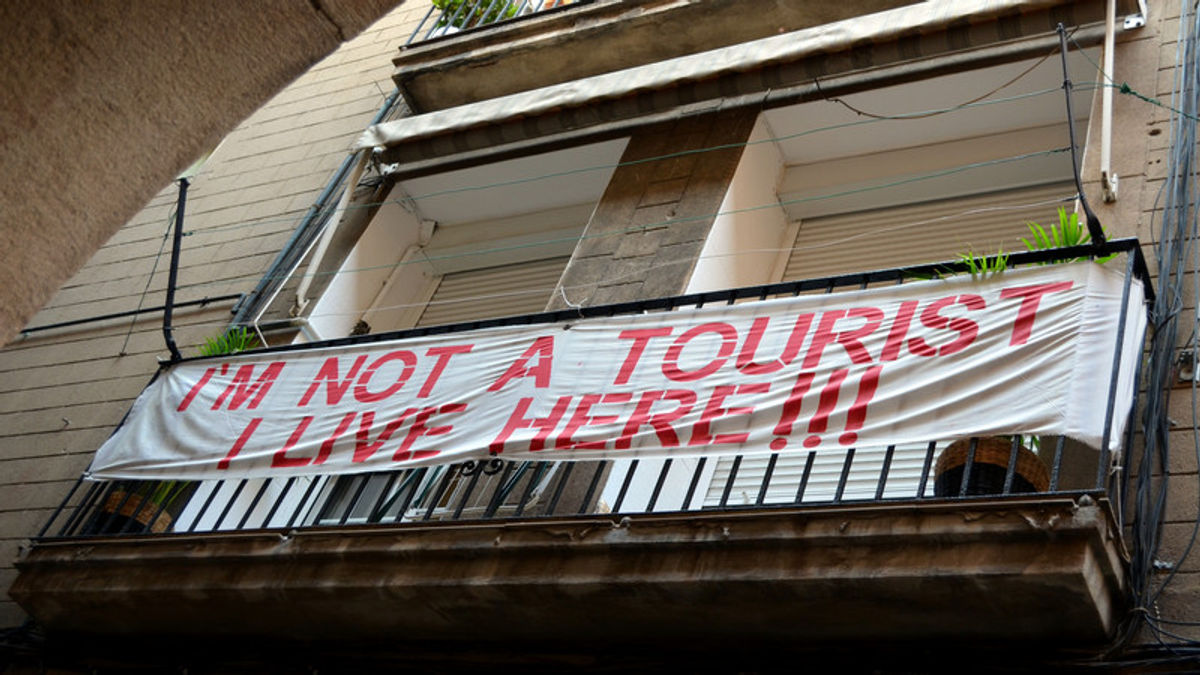Anti-tourism demonstrations across Spain have sparked concerns in the hospitality industry, with some businesses reporting drops in activity over the peak summer months.
Protests have been ongoing for two years in destinations such as Barcelona, Palma de Mallorca and Alicante, where residents have voiced anger over the impact of overtourism on housing, pricing and quality of life. Actions have included marches, placards and even water gun attacks on visitors. In Mallorca, activists have also staged beach protests, displaying fake warning signs.
Hospitality businesses in Benidorm, Lloret de Mar and other resort towns reported quieter-than-usual summers, with some bars and restaurants temporarily closing. The Mallorca Hotel Business Federation responded with billboard campaigns emphasising tourism’s importance to the economy. Reports from Mallorca indicated restaurant sales fell by as much as 50% in May.
Local authorities have also imposed restrictions to manage crowds. Alicante introduced a midnight curfew earlier this year, while Barcelona banned organised pub crawls in August.
HospitalityNet data indicated year-on-year demand declines during July and August in several key destinations, including Barcelona (down 7%), Palma de Mallorca (down 6%), Granada (down 4%) and Malaga (down 3%). In Mallorca, beach bars, parasol rentals and holiday activities recorded a 20% fall in business in July compared with 2023.
Tourist arrivals from the UK and Germany to Mallorca also dipped in July, falling 2.2% and 8.6% respectively.
Despite these figures, Spain’s National Institute of Statistics reported a record-breaking July, with 11 million visitors and tourism spending exceeding €76 billion so far this year. Tourism remains a vital sector for Spain, contributing about 12% of national GDP.
